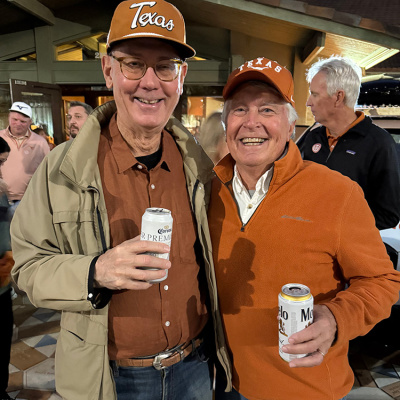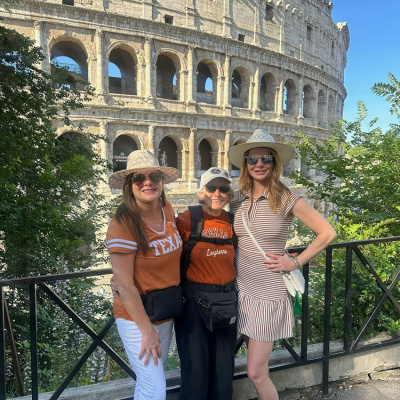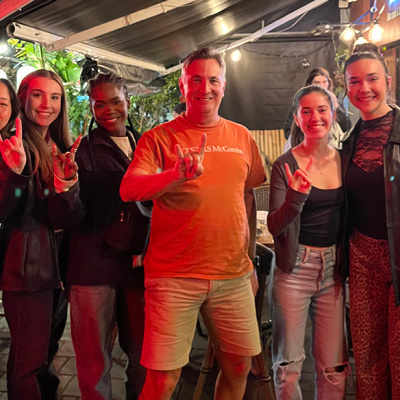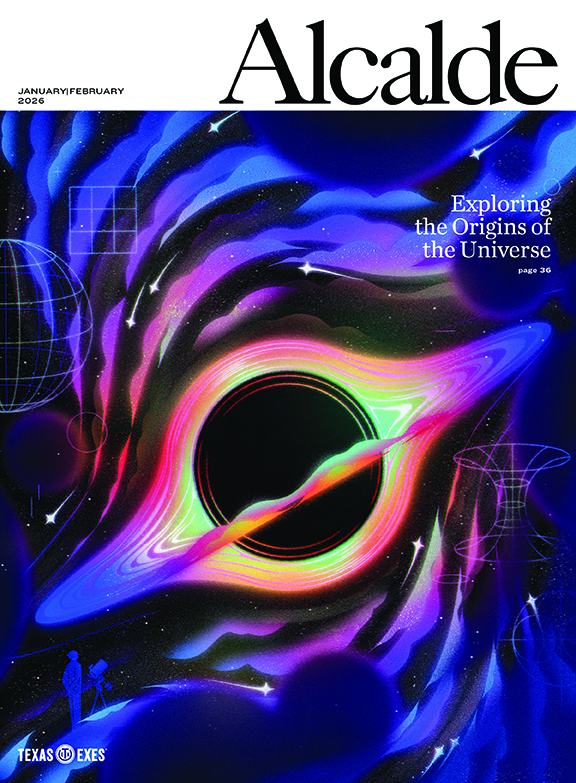UT Alumnus' Debut Novel Takes Readers on a Texas Panhandle Adventure

Randy Kennedy, BA ’91, grew up in Plains, Texas, a small cotton-farming town in the Panhandle. It was isolated, flat, and dry. He filled his time with books, his ticket out of boredom. After graduating from UT, he and a friend packed up and drove to New York City in 1991, where he’s lived ever since. ¶ Still, he could never quite get Texas out of his brain. In fact, he’s spent the last 10 years writing about it. The result: Presidio, a novel out in August from Simon & Schuster that takes place in the 1970s Texas Panhandle. It follows the story of Troy Falconer, a lone car thief, who comes home to help his brother search for his wife, who has run away with all his money. The two steal a station wagon, unknowingly kidnapping a Mennonite girl in the process. Now evading the police and the girl’s father, the three attempt to escape to Mexico.
Kennedy spent 25 years writing for The New York Times, 12 of which he spent covering art. Now, he’s the director of special projects for the international art gallery Hauser & Wirth. Presidio is his first novel.

Did growing up in West Texas compel you to write about Texas?
It did. I didn’t want to be there, but then with distance, you gain certain sorts of appreciation that you might not have if you had stayed there. I began to read a lot about the history of that part of Texas, and because it’s so stark, it did loom large in my visual memory in a lot of ways. There are parts of it that I love deeply that are part of who I am. It feels like a part of Texas that nobody’s written about.
Was it challenging to write about that setting?
When the Spanish explorer Coronado came through this part of Texas in the 16th century with a band of soldiers and priests, those Europeans had never seen a piece of the Earth that flat. The only thing they had that was analogous to it was the ocean, and it completely disoriented them to the point where they were sort of afraid because they had no perspective. It takes forever to get anywhere in that part of Texas, but you can see the next town like 40 miles away. So there’s something about that kind of immense vista that was powerful for me when I was a kid and it lent itself to writing about that part of the country as a character.
Why did you choose to focus on cars?
I don’t know ... because I don’t own one. I had a character of a car thief in my mind even as early as college. It has something to do with thinking of a western character of a horse thief. I think there was just something about how essential the car is in a place that’s so isolated and a car thief having a kind of immense power over people’s lives by taking the car, and also a huge amount of freedom to be able to drive wherever.
Troy is not simply stealing cars. He’s trying to escape his own identity. Did that idea come before the plot itself?
Some of it came at the same time. I worked on this book for 10 years, and I think very early on, I had this idea that he would be a man without possessions, he would be somebody who stopped being able to participate in the regular commerce of life, but that he didn’t really have the courage or conviction to know how to really leave behind all the trappings of modern life.
What was your transition like from journalism to fiction?
I wish it had not taken me so long, but The New York Times was a pretty heavy duty job. But I worked for about three years to have something that started to feel right. It was almost always really late at night and then there would be periods at work where it was so intense to where I wouldn’t work on the book for three or four months. And then at some point I made peace with the fact that this was just going to take a long time.
Did you travel while researching?
I did only once. About seven or eight years ago, I flew to Midland and Odessa and rented a car. I drove very slowly down to the border and stayed a couple days in Presidio. I didn’t quite know yet which part of the border I wanted Troy, his brother, and the girl to go to. I went to Presidio and realized that was the right way. So I stayed in motels and even diners and talked to people. Strangely enough, in Presidio, I was in a convenience store and a family of Mennonites walked in and I just walked around the store very politely watching them and watched them get out of their car. It was kind of a sign from the heavens that this was where it was all supposed to happen.
This interview has been edited and condensed for clarity.






